
Whitehall Paper 84
Target Markets
North Koreas Military Customers in the Sanctions Era
Andrea Berger
www.rusi.org
Royal United Services Institute for Defence and Security Studies
Target Markets: North Koreas Military Customers in the Sanctions Era
Andrea Berger
First published 2015
Whitehall Papers series
Series Editor: Professor Malcolm Chalmers
Editors: Adrian Johnson and Ashlee Godwin
RUSI is a Registered Charity (No. 210639)
ISBN 978-1-138-65493-8
Published on behalf of the Royal United Services Institute for Defence
and Security Studies
by
Routledge Journals, an imprint of Taylor & Francis, 4 Park Square,
Milton Park, Abingdon OX14 4RN
SUBSCRIPTIONS
Please send subscription orders to:
USA/Canada: Taylor & Francis Inc., Journals Department, 530 Walnut Street, Suite 850,
Philadelphia, PA 19106, USA
UK/Rest of World: Routledge Journals, T&F Customer Services, T&F Informa UK Ltd,
Sheepen Place, Colchester, Essex CO3 3LP, UK
All rights reserved. No part of this publication may be reprinted or reproduced or utilised in any form or by any electronic, mechanical, or other means, now known or hereafter invented, including photocopying and recording, or in any information storage or retrieval system, without permission in writing from the publisher.
Contents
Andrea Berger is the Deputy Director of the Proliferation and Nuclear Policy programme at the Royal United Services Institute, where she is also a Senior Research Fellow. Her research focuses on non-proliferation, arms control and sanctions policy, and she takes special interest in the operations of proliferation networks. Andrea has worked extensively on North Korean nuclear issues, having led RUSIs engagement with the Korean Workers Party, Korean Peoples Army, and the DPRK Ministry of Foreign Affairs over a number of years, both in London and Pyongyang. Prior to joining RUSI, Andrea worked in non-proliferation research at the International Centre for Security Analysis. She has also worked for the Government of Canada in a number of analytical capacities, latterly in the Department of Foreign Affairs, Trade and Development.
I am immensely fortunate to have benefited from the insights and expertise of many officials and experts over the course of researching and writing this Whitehall Paper. Foremost amongst them is Malcolm Chalmers, who gave me the opportunity to pursue this longstanding interest, unaware that he would have to endure animated, near-daily accounts of my findings in the months that followed. His constant guidance was indispensable to this study. Caroline Cottet and Michele Capeleto generously provided assistance with my early research. Joshua Pollack, Thomas Plant and Adrian Johnson offered thoughtful and detailed feedback on initial drafts of the manuscript, for which I am endlessly grateful. Many others also contributed their insights through private conversations or interviews, helping to shed light on a subject about which information is so sparse.
Sincerest gratitude is similarly owed to Ashlee Godwin, who tirelessly managed an often intercontinental editorial process to prepare this manuscript for print. My final thank you is reserved for the first person who read this paper, whose input was invaluable.
CIA Central Intelligence Agency
CNC Computer numerically controlled
DDI Directorate of Defence Industries (Burma)
DPRK Democratic Peoples Republic of Korea
DRC Democratic Republic of the Congo
FDLR Democratic Forces for the Liberation of Rwanda
FNLA National Front for the Liberation of Angola
IRGC Iran Revolutionary Guard Corps
ITAR International Traffic in Arms Regulation
KCNA Korean Central News Agency
KOMID Korea Mining Development Trading Corporation
KPA Korean Peoples Army
MANPADS Man-portable air-defence systems
MaRV Maneuverable re-entry vehicle
MLRS Multiple-launch rocket system
MTCR Missile Technology Control Regime
NPT Nuclear Non-Proliferation Treaty
ONI Office of Naval Intelligence (United States)
P5 Permanent five members of the UN Security Council
PLO Palestine Liberation Organization
PSI Proliferation Security Initiative
R&D Research and development
RoC Republic of the Congo
SBIG Shahid Bagheri Industrial Group (Iran)
SIPRI Stockholm International Peace Research Institute
SSRC Scientific Studies and Research Centre (Syria)
UAE United Arab Emirates
UK United Kingdom
UN United Nations
US United States
WMD Weapons of mass destruction
This Whitehall Paper draws upon an array of sources. Information on contemporary North Korean activity is not easy to obtain, particularly regarding military relationships and arms sales since 2006, with both customer and supplier eager to hide the existence of a contract or delivery. The DPRK and its customers have adapted to the UN arms embargo imposed against North Korea in 2006 and strengthened in 2009. To circumvent sanctions, they rely upon complex logistical and financial networks. Amongst other tactics, they lengthen the chain of brokers and intermediaries involved in a transaction to mask North Korean involvement, conceal illicit goods in containerised shipping, and engage in barter deals that evade due-diligence procedures in the global financial system. While sanctions have undoubtedly made life more difficult for North Koreas arms exporters and their clientele, their responses have complicated the international communitys ability to detect sanctions-busting activity.
As a consequence, relevant information is scattered between media reports, declassified or leaked documents, government statements, UN reports, defector testimony and open-source imagery. This study brings that disparate information together, and makes every attempt to corroborate it. Substantiation is not always possible and subjectivity is therefore often unavoidable. As a result, this author makes clear where a particular assessment rests on a single source or where subjectivity as to the reliability of the information is used. Where an allegation appears particularly questionable, it is either introduced as such or omitted entirely.1
A disproportionate amount of the information used to support the claims in this paper is of Western origin. Few governments see countering North Koreas arms trade as a top priority. The US devotes by far the most resources and attention to this issue, as it is largely seen as a response to the North Korean nuclear problem. This is in line with the USs activeness within the non-proliferation arena generally. Other Western nations as well as countries like South Korea and Japan recognise it as important and actively engage with the issue where and to the extent possible, but are ultimately unable to devote comparable resources to addressing it. Elsewhere, few governments give attention to countering North Korean arms sales at all. Credible information on sanctions-relevant activity is thus primarily offered in US and Western sources. The authors limited access to translation resources has expanded this studys reliance on English-language material (though not necessarily from Western nations). As a result, it is hoped that future scholarship on the issue of the North Korean arms trade will be forthcoming from experts with access to a wider range of foreign-language resources.



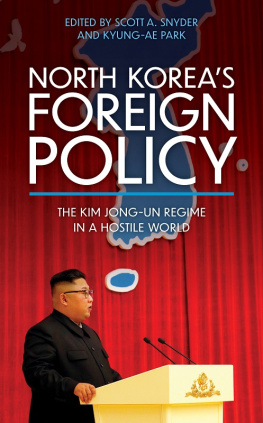
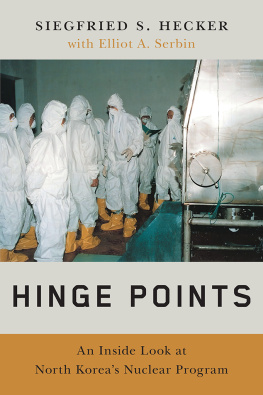
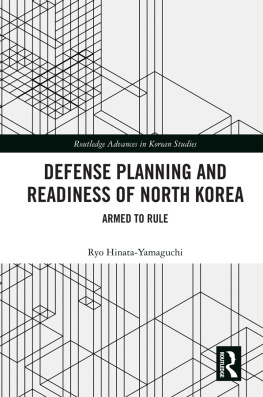

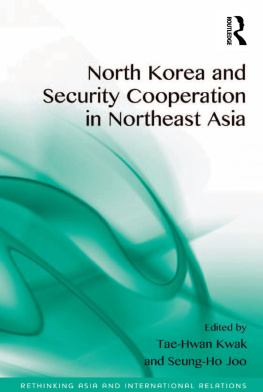
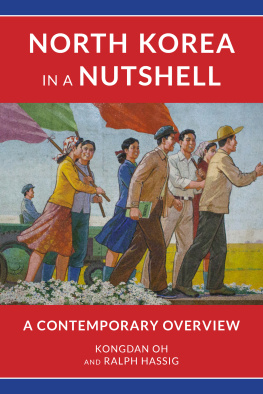

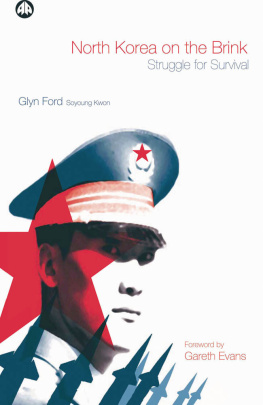
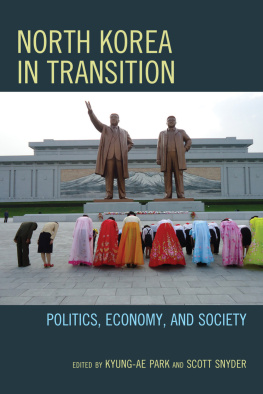

 Whitehall Paper 84
Whitehall Paper 84